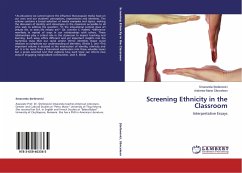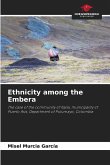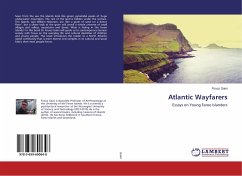This book explores the transformation of a small town in South East Transylvania, Sighi oara, historically defined through a strong German presence. Despite the small number of Germans remaining in the region after the massive migrations of the last decades, historical German privilege (made visible through and materialized in the long-lasting architecture) is reformulated and re-configured in the present precisely through processes connected to valuing and producing this built landscape as historical heritage. By analyzing the gentrification of the historical citadel, transformations in public spaces, and NGO and historical preservation funding, I argue that Germanness offers a discursive space in which local desires for a developed West are able to articulate, productively, with Western nostalgias for a developmental do-over, as well as with fears for an endangered European heritage at the margins of Western civilization.
Bitte wählen Sie Ihr Anliegen aus.
Rechnungen
Retourenschein anfordern
Bestellstatus
Storno








